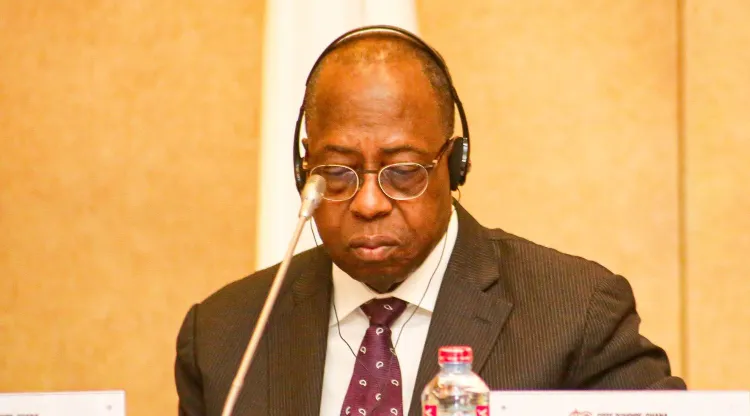Ivory Coast has put a freeze on cocoa contracts for the 2023/24 crop season following weeks of torrential rains that have flooded farms, Reuters has reported.
With cocoa prices currently at record levels due to concerns over supplies, the suspension of sales will come as a blow to the country which the United Nations says is reliant on cocoa for 40% of its export earnings.
Yves Brahima Kone, director general of the Coffee and Cocoa Council (CCC) said sales before the suspension had exceeded one million tonnes. The total output projected for the current season was 2.2 million tonnes.
The suspension will also be a blow to buyers and major commodities trading houses such as Cargill and Olam and chocolate makers like Barry Callebaut, Hershey and Nestle.
The main cocoa harvest is set to start flowing into ports for export from October, said Yves Brahima Kone, director general of the Coffee and Cocoa Council (CCC), adding that output is expected to significantly decline.
“We expect much less cocoa in the first part of the main harvest compared to this season. We hope that the production from January to March will help balance our volumes, otherwise, it will be a problem,” Kone said.
We stopped the sales a few days ago because we are not certain of having enough volume to cover the sales, he said.
Concerns over supplies have pushed cocoa futures prices to a 46-year high in recent weeks and up more than 27%since January.
Ivory Coast is in the middle of its April to November rainy season. Cocoa farming requires abundant rains interspersed with long sunny spells.
But Ivory Coast and other major cocoa producers Ghana, Nigeria and Cameroon that account for around 70% of global production, have witnessed heavy tropical downpours in recent weeks.
Several cocoa plantations in Ivory Coast’s cocoa-growing regions in the southwest and southeast were flooded by torrential rains between May 15 and July 10.
On May 15, tropical rains fell continuously for eight hours with unprecedented intensity in the Aboisso region in southeastern Ivory Coast, farmers and residents told Reuters.
The intense rains lashed cocoa plants causing tiny flowers and cherelles, which were expected to develop and become the first pods of the 2023-2024 main harvest which starts in October, to fall from trees.
Farmers, cocoa pod counters, and cocoa exporters based in Ivory Coast, also told Reuters that they expected a significant decline in output during the first part of the main harvest.
“We experienced three days of flooding around May 15, and the situation is not improving because the rains do not stop,” said Jean Paul Kadjo, who farms in Akressi, a village near Aboisso. “Plantations are currently saturated with water.”
A cocoa pod counter said similar conditions have been observed in Ivory Coast’s cocoa belt in San Pedro, Soubre, Grabo, and Tai.
It is worrisome and poses a real risk to cocoa production, said the pod counter who has just completed a tour of farms.
Brown rot or black pod disease, a fungal disease that attacks pods and trees, has started spreading in farms in Aboisso as a result of the prolonged wet conditions, farmers said.
Kouman Kouadio, 43, who owns four hectares of cocoa plantations in the Aboisso region, said many farmers are worried about the threat to their livelihood.
“Almost all the flowers fell after the rains, and rot is spoiling everything else. For now, we don’t see any upcoming harvest because there is nothing on the trees,” Kouadio said.
Although most of the water has receded, the soil is struggling to absorb the rain that fell in recent weeks, farmers said.
“Brown rot is progressing everywhere due to the rains,” CCC’s Kone said. “We are assembling a team to assess the situation more objectively. It worries us, and we must take action to mitigate it.”
- Major Ghana Cocoa Region 81% Infected with Bean Disease - July 22, 2024
- Ghana to Delay More Cocoa Deliveries as Supply Crisis Worsens - June 12, 2024
- Cocoa Production Helping Mitigate Climate Change Impact - June 10, 2024
